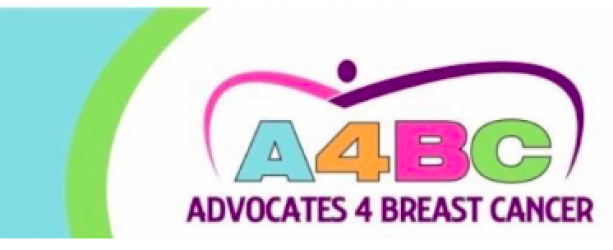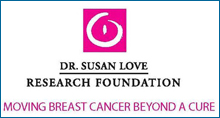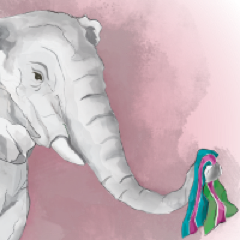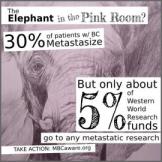 This was an incredible week for breast cancer patients, advocates, doctors, bloggers, and what has happened in breast cancer news and social media. I started on Twitter a year ago and for those of you who don’t know about the format, Twitter is a place where you pick a name for yourself (mine is @a4breastcancer-A4BC was taken) and then there are #hashtags which are names of groups or topics.
This was an incredible week for breast cancer patients, advocates, doctors, bloggers, and what has happened in breast cancer news and social media. I started on Twitter a year ago and for those of you who don’t know about the format, Twitter is a place where you pick a name for yourself (mine is @a4breastcancer-A4BC was taken) and then there are #hashtags which are names of groups or topics.
Because I find and put together breast cancer news articles as part of Advocates for Breast Cancer (A4BC), I created a new hashtag, #BCANS (Breast Cancer News). I am learning a lot about what ends up as news as well as trying to sort through articles that I hope will be of interest to fellow medical professionals, researchers, advocates, patients, and organizations while I try to decide what is newsworthy. This has been an incredible week of news combined with social media.
 I am very proud of being part of the #BCSM (Breast Cancer Social Media) community which meets on Monday nights from 9-10 Eastern Standard time. It is an incredible group moderated by Dr. Deanna Attai (breast surgeon), Alicia Stales and Jody Schroeger and this week we had a review of what happened in breast cancer at the annual meeting of #ASCO13 ( American Society of Clinical Oncology Meeting 2013, Chicago May 30-June3). I was thrilled because I had followed and gathered #BCANS (breast cancer news) everyday at #ASCO13. I also used and followed the #ASCO13 Twitter feed.
I am very proud of being part of the #BCSM (Breast Cancer Social Media) community which meets on Monday nights from 9-10 Eastern Standard time. It is an incredible group moderated by Dr. Deanna Attai (breast surgeon), Alicia Stales and Jody Schroeger and this week we had a review of what happened in breast cancer at the annual meeting of #ASCO13 ( American Society of Clinical Oncology Meeting 2013, Chicago May 30-June3). I was thrilled because I had followed and gathered #BCANS (breast cancer news) everyday at #ASCO13. I also used and followed the #ASCO13 Twitter feed.
 The #BCSM meeting Monday night was so exciting because we had almost as many doctors as patients and patient advocates on the chat including the President of ASCO , Dr. Clifford Hudis (who is also the Chief of Breast Cancer Medicine at MSKCC-(Memorial Sloan Kettering), Dr. Seisenberg (oncologist), Dr. Diane Radford (breast surgeon), Dr. Bob Miller (oncologist), Dr. Matthew Katz, (radiation oncologist), Dr. Krupali (medical oncologist), Dr. Dana (breast oncologist), Dr.Anas Younes (lymphoma expert), Dr.Damodhar (surgeon), and Dr. Naoto Ueno (medical oncologist). (I hope I didn’t miss anyone and I simplified their specialties as otherwise this would be very long!) It was so exciting with all the Doctors and patients interacting, talking about the breast cancer highlights from #ASCO13.
The #BCSM meeting Monday night was so exciting because we had almost as many doctors as patients and patient advocates on the chat including the President of ASCO , Dr. Clifford Hudis (who is also the Chief of Breast Cancer Medicine at MSKCC-(Memorial Sloan Kettering), Dr. Seisenberg (oncologist), Dr. Diane Radford (breast surgeon), Dr. Bob Miller (oncologist), Dr. Matthew Katz, (radiation oncologist), Dr. Krupali (medical oncologist), Dr. Dana (breast oncologist), Dr.Anas Younes (lymphoma expert), Dr.Damodhar (surgeon), and Dr. Naoto Ueno (medical oncologist). (I hope I didn’t miss anyone and I simplified their specialties as otherwise this would be very long!) It was so exciting with all the Doctors and patients interacting, talking about the breast cancer highlights from #ASCO13.
What we discussed is in trials and things we can be hopeful for in the future as well as certain things that may impact our specific cases that we can talk to our own oncologists about. I have mentioned how impressed I am with ASCO because the organization recognizes the importance of patient advocates as well as social media and it relationship to current oncology practices.
What was so great about the #BCSM chat was that patients and doctors could come together and discuss highlights from the #ASCO13 meeting and I love that the doctors are willing to listen to patients, our thoughts, stories as well as ideas and we all learned something together. I am honored that theses doctors care about patients and come together for this type of meeting and I am so impressed with the people I am meeting as a result. To see the transcript follow this link: #BCSM Transcript- Highlights from #ASCO13
 I am so excited with what’s happening with social media. I am so proud of my friend and fellow blogger Scorchy Barrington at: The Sarcastic Boob. Scorchy started a petition on change.org opposing Facebook for not allowing photographs from famed photographer David Jay, that showed post-mastectomy photos of women known as The Scar Project, because they violated Facebook’s terms of service. Imagine my delight as I am gathering the news on Wednesday and I see on my news feed an article in the Chicago Tribune that talks about Scorchy’s change.org petition, where she got over 21 thousand signatures of people who felt the pictures belonged on Facebook. I rushed to get the message out on Twitter and as I was also getting it on Facebook there were so many news feeds of articles including CBS News, FOX, The Daily News, The Daily Mail, NBC, ABC , (to name a few). coming out at once that I could hardly keep up with them. Then there was a burst of energy on Twitter and Facebook with so many people cheering for Scorchy and another great friend and blogger AnneMarie at: Chemobrain…In the Fog, started a campaign to get #Scorchy trending on Twitter.
I am so excited with what’s happening with social media. I am so proud of my friend and fellow blogger Scorchy Barrington at: The Sarcastic Boob. Scorchy started a petition on change.org opposing Facebook for not allowing photographs from famed photographer David Jay, that showed post-mastectomy photos of women known as The Scar Project, because they violated Facebook’s terms of service. Imagine my delight as I am gathering the news on Wednesday and I see on my news feed an article in the Chicago Tribune that talks about Scorchy’s change.org petition, where she got over 21 thousand signatures of people who felt the pictures belonged on Facebook. I rushed to get the message out on Twitter and as I was also getting it on Facebook there were so many news feeds of articles including CBS News, FOX, The Daily News, The Daily Mail, NBC, ABC , (to name a few). coming out at once that I could hardly keep up with them. Then there was a burst of energy on Twitter and Facebook with so many people cheering for Scorchy and another great friend and blogger AnneMarie at: Chemobrain…In the Fog, started a campaign to get #Scorchy trending on Twitter.
 Facebook posted this statement: “We agree that undergoing a mastectomy is a life-changing experience and that sharing photos can help raise awareness about breast cancer and support the men and women facing a diagnosis, undergoing treatment, or living with the scars of cancer. The vast majority of these kinds of photos are compliant with our policies.”
Facebook posted this statement: “We agree that undergoing a mastectomy is a life-changing experience and that sharing photos can help raise awareness about breast cancer and support the men and women facing a diagnosis, undergoing treatment, or living with the scars of cancer. The vast majority of these kinds of photos are compliant with our policies.”
Thanks to brilliant work of Scorchy they will now show these important photos as well as Annmarie Giannino-Otis’s photos at Stupid Dumb Breast Cancer. If you haven’t seen The Scar Project photos, I recommend you look at it here: The Scar Project
Scorchy was quoted saying, “We want the world to know that breast cancer is not a pink ribbon — it is traumatic, it is life-changing, and it urgently needs a cure.”
 Scorchy has breast cancer and is Stage IV. She is an amazing blogger, honest, funny, engaging and what she did with this petition and getting all of this news in mainstream media is so fantastic, because patient advocates have worked so hard to let the public know that breast cancer is so much more than a pink ribbon, while all of this “pinkwashing” about the disease distorts some of the harsh realities about breast cancer. These photographs depict real women who know the truth about mastectomies which make scars and are many times lots of surgeries (my case), with different women making difficult choices about whether to do reconstruction and some women especially who get IBC (Inflammatory Breast Cancer) can’t even try reconstruction because IBC happens on the breast skin. As I have said so many times this disease is killing one woman every 14 minutes in the US alone.
Scorchy has breast cancer and is Stage IV. She is an amazing blogger, honest, funny, engaging and what she did with this petition and getting all of this news in mainstream media is so fantastic, because patient advocates have worked so hard to let the public know that breast cancer is so much more than a pink ribbon, while all of this “pinkwashing” about the disease distorts some of the harsh realities about breast cancer. These photographs depict real women who know the truth about mastectomies which make scars and are many times lots of surgeries (my case), with different women making difficult choices about whether to do reconstruction and some women especially who get IBC (Inflammatory Breast Cancer) can’t even try reconstruction because IBC happens on the breast skin. As I have said so many times this disease is killing one woman every 14 minutes in the US alone.
 There’s a lot of “pinkwashing” of the disease and so many woman who have had breast cancer hate the color pink because of what has been done to the color by representing an oversimplification of a pretty pink disease. As a former ballerina I still love the color pink but I detest “pinkwashing.”
There’s a lot of “pinkwashing” of the disease and so many woman who have had breast cancer hate the color pink because of what has been done to the color by representing an oversimplification of a pretty pink disease. As a former ballerina I still love the color pink but I detest “pinkwashing.”
Getting back to this exciting week and all the action on social media, I was still so happy when I got up on Thursday after all the excitement that #Scorchy brought and while I was preparing #BCANS articles, #SCOTUS (The Supreme Court of the United States) ruling came down and 9 judges voted against Myriad genetics.
I have written about the Supreme Court Case in which Myriad Genetics was challenged because they had a patent on our human BRCA genes. This patent allowed them to be the only ones to do this gene test which kept other researchers and companies from conducting research for better tests that would help women with treatment decisions by knowing if they are at high risk of developing this genetic form of breast and ovarian cancer. While Myriad held the monopoly on the test, other companies were prevented from developing better and less expensive tests and more research into other genes.
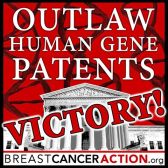
The case originally in 2009 brought together many diverse plaintiffs in New York Federal Court that included the ACLU, the Association for Molecular Pathology, the American College of Medical Genetics, individual researchers; women’s health and breast cancer advocacy groups, including Breast Cancer Action and Our Bodies Ourselves; and women who have breast and ovarian cancer. Originally they ruled against Myriad but the case was overturned a year later in an appellate court. Absent from the list of plaintiffs was the Susan G. Komen Foundation who lists Myriad Genetics as a donor to their organization.
One of the plaintiffs, Breast Cancer Action (which I am so proud to be on the Speakers Bureau) is a national grassroots education and advocacy organization working to end the breast cancer. They do not accept any donations from companies, corporations or anyone who profits from or contributes to the breast cancer epidemic.
 The Supreme Court ruled against Myriad Genetics by ruling that companies cannot patent parts of naturally occurring human genes. The ruling was complex and at the heart of it was the patent, but the result will help doctors, pathology labs, research, breast and ovarian cancer patients and those at high risk for the disease and will also help make the test more affordable. The test was very expensive (over $4000.00) and many women were uninsured, and those who carried insurance while doing the test were sometimes denied payment or had very high co-pays for the test. There is already a genetics testing company based in Houston that said it would offer the test for $995.00 called DNATraits. To see the decision go to: The Association for Molecular Pathology et al. vs. Myriad Genetics .
The Supreme Court ruled against Myriad Genetics by ruling that companies cannot patent parts of naturally occurring human genes. The ruling was complex and at the heart of it was the patent, but the result will help doctors, pathology labs, research, breast and ovarian cancer patients and those at high risk for the disease and will also help make the test more affordable. The test was very expensive (over $4000.00) and many women were uninsured, and those who carried insurance while doing the test were sometimes denied payment or had very high co-pays for the test. There is already a genetics testing company based in Houston that said it would offer the test for $995.00 called DNATraits. To see the decision go to: The Association for Molecular Pathology et al. vs. Myriad Genetics .
It was so much fun for all of us to get on Social Media cheering this monumental decision of the Supreme Court. I feel so connected to so many others including breast cancer patients, patient advocates, doctors, legislators, organizations, bloggers, and of course #Scorchy, that are working every day to help other patients, make the public aware about the realities of this disease, get more funding for research especially for patients who are metastatic and doing difficult treatments every day to stay alive, and finally work to develop a vaccine that will prevent this horrible disease in the first place.
 It’s been a fantastic week of news and social media. My favorite end to the week will come out soon from my fellow blogger Marie at: Journeying Beyond Breast Cancer, where she will do the weekly round-up of some of the best blogs that came out this week. It’s really a great time to be connected to so many awesome people.
It’s been a fantastic week of news and social media. My favorite end to the week will come out soon from my fellow blogger Marie at: Journeying Beyond Breast Cancer, where she will do the weekly round-up of some of the best blogs that came out this week. It’s really a great time to be connected to so many awesome people.
 We’re pleased to announce the groundbreaking collaboration of three breast cancer powerhouses to document the short- and long-term physical and emotional side effects of breast cancer treatments as part of the Dr. Susan Love Research Foundation’s Health of Women [HOW] Study.
We’re pleased to announce the groundbreaking collaboration of three breast cancer powerhouses to document the short- and long-term physical and emotional side effects of breast cancer treatments as part of the Dr. Susan Love Research Foundation’s Health of Women [HOW] Study. Susan G. Komen and Young Survival Coalition have agreed and are inviting their constituents to share their experiences with collateral damage from treatment and to participate in the HOW Study as a means of identifying the causes of, and prevention strategies for breast cancer. This groundbreaking collaboration also demonstrates that different breast cancer organizations can work together on important issues. We welcome all breast cancer and cancer groups to join us.
Susan G. Komen and Young Survival Coalition have agreed and are inviting their constituents to share their experiences with collateral damage from treatment and to participate in the HOW Study as a means of identifying the causes of, and prevention strategies for breast cancer. This groundbreaking collaboration also demonstrates that different breast cancer organizations can work together on important issues. We welcome all breast cancer and cancer groups to join us. Questions about collateral damage from breast cancer can be submitted through October to http://www.questionthecure.org. Anyone interested in being part of this initiative can register for the Health of Women [HOW] Study and complete the basic questionnaires on personal health and/or breast cancer diagnoses. When the collateral damage module is complete and online, participants will be notified by email.
Questions about collateral damage from breast cancer can be submitted through October to http://www.questionthecure.org. Anyone interested in being part of this initiative can register for the Health of Women [HOW] Study and complete the basic questionnaires on personal health and/or breast cancer diagnoses. When the collateral damage module is complete and online, participants will be notified by email.
